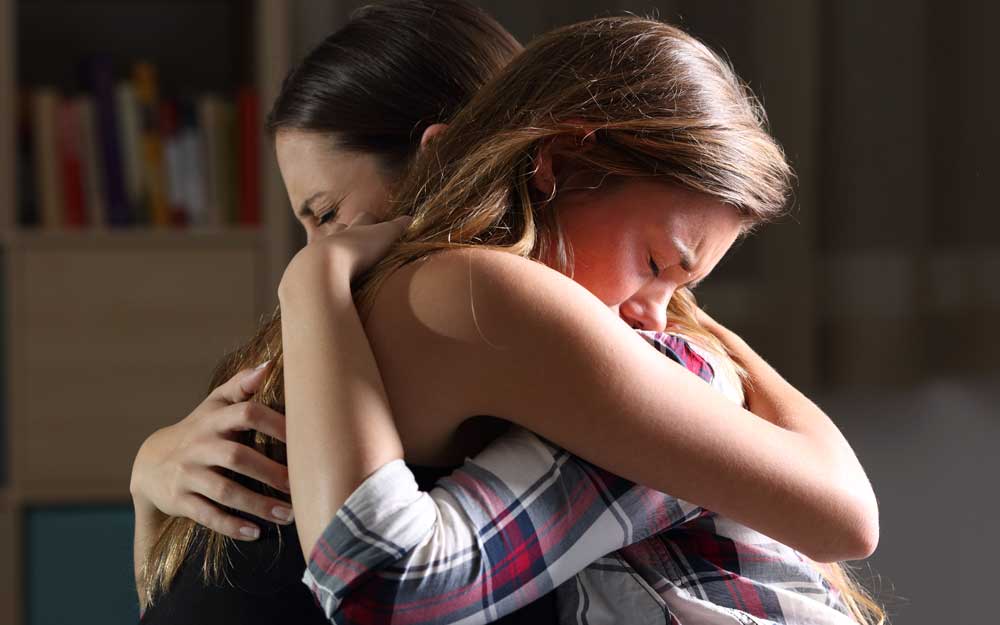You see the alert pop up on your phone or the headline on the nightly news about the latest mass shooting. As a parent your heart immediately sinks as you think about your child’s safety. And then your mind races to what types of questions your child might ask and how to best respond. We asked our experts to share their advice for talking with children and teens about tragic events such as mass shootings.
6 tips to keep in mind when talking with your child
-
Talk about it. Don’t ignore it. It’s important to address the situation no matter the age. Listen to them as they share. Don’t assume because they’re using the “lingo” they understand what it means. Ask for clarification; “I noticed you said intruder; what’s an intruder?” It’s important to be honest with your child. If you are unsure how to answer or don’t know the answer, validate their question and let them know you’ll follow up to get the answer.
-
“Teach me what you learn.” Ask your child to tell you about the school’s safety plan. Many school districts provide families with the school safety material well in advance of the students reviewing this in school. This allows parents the opportunity to review the material, ask questions of their own, and be prepared for their child to bring questions home. When talking with your child, it’s important to validate emotions and reinforce what they’ve learned. It’s also a good time to talk through your own family’s safety plan—when should they call 911, what should they do if a stranger comes to the door, how can they navigate social media, how would they respond to a natural disaster, and which adults does the family trust and consider safe? Talking through and creating these plans will help everyone feel more prepared and could ease worries they have.
-
Don’t overload them with too much information. It’s best to keep your answers as simple as you can. When possible, think ahead of time what points you want to emphasize. Ensure the discussion is interactive. Over-explaining often leads children to “zone out” midway through the discussion, which could risk missing key points of the discussion. Too much information could also lead children to feel overwhelmed. If you’re unsure whether you’ve spent enough time on a topic, ask them “Do you have any questions about ___?” It’s also a great idea to ask your child to restate what they took away from the discussion.
-
Be careful of overexposure. While you can’t control what goes on in the world, you can control the rate at which you expose your children to this content within your home. If you’re watching or listening to news coverage about tragic events over and over, that could have a negative effect on how they feel about the situation, spiraling them into feeling scared, worried, or anxious.
-
Emphasize the ways your child is safe. Many times as adults, our automatic response when a child says “I’m scared” or something bad happens, is to respond with “It’s okay….you’re safe.” Instead of telling them they’re safe, provide some examples of all the efforts that go into ensuring their safety. Examples could be, “Do we leave our front doors unlocked or does the school let anyone in?” Brainstorm together all the steps that are taken to ensure safety such as fire alarms, seat belts, traffic lights, weather alerts, and first responders. Reinforce that adults like law enforcement and teachers have gone through special safety training and are there to protect them if something bad does happen.
-
Stress that most people aren’t dangerous. Emphasize to your child that even though a violent event did happen, it doesn’t mean that everyone or everything is dangerous. Encourage your child to talk to you or a trusted adult if they see something dangerous happen, as well as if a peer talks about unsafe things.
When should you reach out for professional help?
It’s time to seek help if your child is displaying any of these symptoms:
- Anxiety that continues to escalate despite providing information
- Frequent nightmares
- Intrusive memories or thoughts
- Fear of participating in normal activities or activities they historically enjoyed
- Changes in appetite, sleeping, or mood
- Avoiding school
- Avoiding separation from their trusted adult
Rogers can help
Rogers provides a range of specialized, evidence-based levels of mental health treatment across the U.S. for children and teens struggling with trauma-related disorders such as posttraumatic stress disorder, OCD, anxiety, depression and other mood disorders, and addiction. If someone you know is struggling, reach out to us for a free, confidential screening by calling 800-767-4411, or requesting one online.


